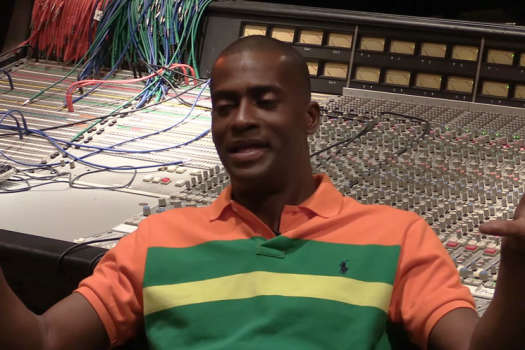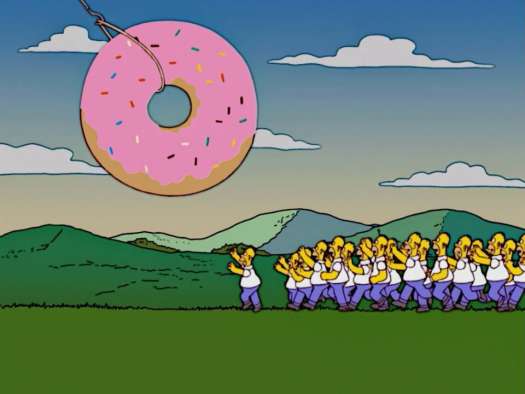In 2004, New Jersey passed the Domestic Partnership Benefits and Obligations Act, which allowed gay and lesbian couples to pass on their benefits, including pension, to their surviving domestic partners.
Around this time, Laurel Hester, a 20-year-plus veteran of the Ocean County prosecutor's office, registered her younger lover Stacie Leigh Andrie as her domestic partner. Shortly thereafter, Hester was struck with an aggressive form of lung cancer. When it spread to her brain — and it was clear that she didn't have long to live — she was advised that Stacie would not be authorized to receive her pension due to same-sex limitations specifically in Ocean County. More specifically, five Republican freeholders denied her request to pass on her pension to her domestic partner as it defied the sanctity of marriage.
Freeheld, Peter Sollett's biopic about Laurel Hester (Julianne Moore), starts just prior to these legal, political and medical battles. Though it's based on the documentary short, Freeheld, which won an Oscar in 2007, Sollett and team step back to develop the relationship between Hester and Stacie Leigh (Ellen Page), portraying the officer as a guarded, no-bullshit type of woman with an abundance of integrity and strength.
These early moments, when the relationship between two women with differing dispositions develops — Stacie's more emotional and open about her sexuality than Hester, a closeted professional with her gun perpetually in arm's reach — add a rich texture to this story. Both Moore and Page are entirely convincing in their respective roles (unsurprisingly, Moore is immersed in this character, embodying these attributes entirely), making it easy to buy their feelings for each other and invest in their struggle.
What's also handled well is the "at work" dynamic that's established for Hester with her job partner, Dane Wells (Michael Shannon). She's not out and there's a hint that Wells might have a bit of a crush on her. This causes minor tension between Stacie and Laurel, which is minor and only adds to the natural complexities of any long-term relationship.
Up until the couple is denied pension transfer, Freeheld is a rather immersive, excellent film. There are occasional contrivances, such as pointed anti-gay comments in Laurel's office, but the news of Laurel's illness and how these women stick together is emotionally wrenching and difficult to watch.
Oddly, at this point, the narrative shifts almost entirely to Wells. We're left with him overcoming his own conservative stance on the issue to fight for his partner, offering Stacie support amidst a nightmare of medical bills and sick-time bureaucracy. And once Wells gets involved, confronting the youngest, most liberal freeholder (Josh Charles) and trying to rally his reluctant colleagues (many of whom make really broad, unlikely statements about the sanctity of marriage), the tone changes somewhat. This is heightened by the introduction of Steven Goldstein (Steve Carell), a flamboyant gay marriage activist quick to exploit Laurel's struggle to push his own agenda. There's an abundance of off-putting comic relief between the stoic Wells and the swishy Goldstein, which is seemingly intended to provide some levity in an otherwise devastating story.
But, in its own way, it sort of does a disservice to the story. Stacie's issues juggling financial and emotional issues are sort of pushed to the side, and Laurel pops up only intermittently in a hospital bed, making it clear that she's more about equality than gay marriage rights, specifically. While the intentions are admirable — using this story to make a political statement that the subject was fighting even at the end of her life — there's something sloppy and manipulative about how it ultimately unfolds.
Still, there's really no denying the intensity of the core story and the strength of the lead performances. Even though things get a bit heavy-handed in Freeheld, it's tough not to walk away unaffected by the tenderness of the core relationship and the overwhelming sense of liberation when such a gruelling fight finally leads somewhere positive. As such, it's easy to overlook some of the triteness and appreciate the bigger picture of it all, which is the importance of treating each other with respect and dignity.
(eOne)Around this time, Laurel Hester, a 20-year-plus veteran of the Ocean County prosecutor's office, registered her younger lover Stacie Leigh Andrie as her domestic partner. Shortly thereafter, Hester was struck with an aggressive form of lung cancer. When it spread to her brain — and it was clear that she didn't have long to live — she was advised that Stacie would not be authorized to receive her pension due to same-sex limitations specifically in Ocean County. More specifically, five Republican freeholders denied her request to pass on her pension to her domestic partner as it defied the sanctity of marriage.
Freeheld, Peter Sollett's biopic about Laurel Hester (Julianne Moore), starts just prior to these legal, political and medical battles. Though it's based on the documentary short, Freeheld, which won an Oscar in 2007, Sollett and team step back to develop the relationship between Hester and Stacie Leigh (Ellen Page), portraying the officer as a guarded, no-bullshit type of woman with an abundance of integrity and strength.
These early moments, when the relationship between two women with differing dispositions develops — Stacie's more emotional and open about her sexuality than Hester, a closeted professional with her gun perpetually in arm's reach — add a rich texture to this story. Both Moore and Page are entirely convincing in their respective roles (unsurprisingly, Moore is immersed in this character, embodying these attributes entirely), making it easy to buy their feelings for each other and invest in their struggle.
What's also handled well is the "at work" dynamic that's established for Hester with her job partner, Dane Wells (Michael Shannon). She's not out and there's a hint that Wells might have a bit of a crush on her. This causes minor tension between Stacie and Laurel, which is minor and only adds to the natural complexities of any long-term relationship.
Up until the couple is denied pension transfer, Freeheld is a rather immersive, excellent film. There are occasional contrivances, such as pointed anti-gay comments in Laurel's office, but the news of Laurel's illness and how these women stick together is emotionally wrenching and difficult to watch.
Oddly, at this point, the narrative shifts almost entirely to Wells. We're left with him overcoming his own conservative stance on the issue to fight for his partner, offering Stacie support amidst a nightmare of medical bills and sick-time bureaucracy. And once Wells gets involved, confronting the youngest, most liberal freeholder (Josh Charles) and trying to rally his reluctant colleagues (many of whom make really broad, unlikely statements about the sanctity of marriage), the tone changes somewhat. This is heightened by the introduction of Steven Goldstein (Steve Carell), a flamboyant gay marriage activist quick to exploit Laurel's struggle to push his own agenda. There's an abundance of off-putting comic relief between the stoic Wells and the swishy Goldstein, which is seemingly intended to provide some levity in an otherwise devastating story.
But, in its own way, it sort of does a disservice to the story. Stacie's issues juggling financial and emotional issues are sort of pushed to the side, and Laurel pops up only intermittently in a hospital bed, making it clear that she's more about equality than gay marriage rights, specifically. While the intentions are admirable — using this story to make a political statement that the subject was fighting even at the end of her life — there's something sloppy and manipulative about how it ultimately unfolds.
Still, there's really no denying the intensity of the core story and the strength of the lead performances. Even though things get a bit heavy-handed in Freeheld, it's tough not to walk away unaffected by the tenderness of the core relationship and the overwhelming sense of liberation when such a gruelling fight finally leads somewhere positive. As such, it's easy to overlook some of the triteness and appreciate the bigger picture of it all, which is the importance of treating each other with respect and dignity.




